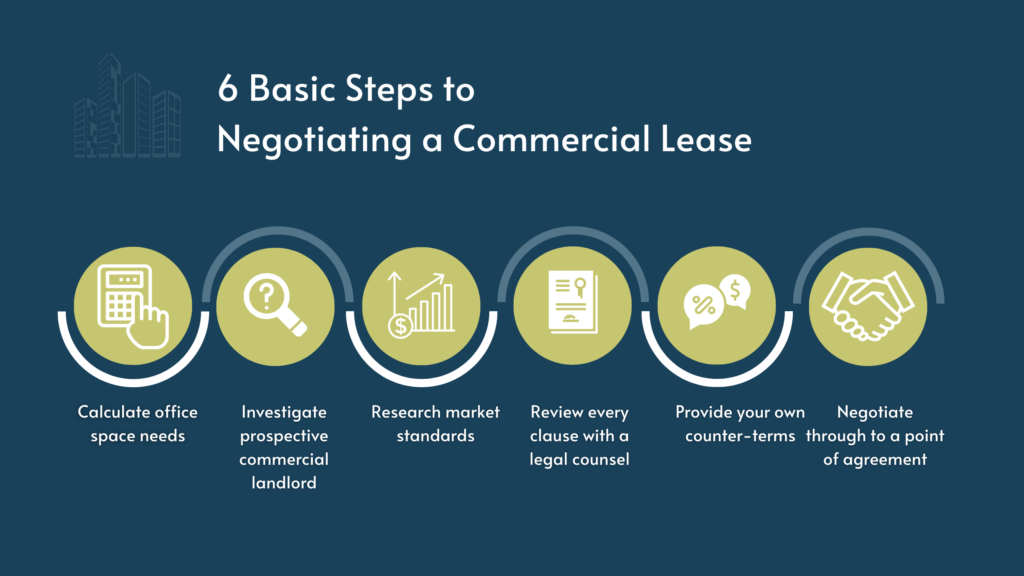Welcome to the topic “Why You Need a Real Estate Attorney for Lease Negotiations“
The importance of hiring the right attorney cannot be overstated when engaging in lease negotiations. Just as you wouldn’t trust a cardiologist to perform brain surgery, you shouldn’t rely on a general counsel to navigate the intricate world of real estate law.
To protect your interests and secure the best possible lease terms, working with a specialized real estate attorney is crucial. This comprehensive guide will outline the reasons why a real estate attorney is indispensable during lease negotiations, emphasizing the benefits of their expertise, experience, and strategic thinking.
1. The Importance of Specialization in Law
Law, much like medicine, is a field where practitioners often specialize in a specific area of expertise. Working with an attorney who is well-versed in real estate will help mitigate risk, save money, and ensure the lease you sign is the best possible deal. Lease negotiations can be complex and contentious, and you’ll want an expert on your side to secure a successful transaction. Good real estate attorneys will have a variety of cases under their belt; understanding various deal structures, leverage tools, contingency plans, and many other methods to ensure deals are generated properly for the benefit of the client.
2. Specialized Knowledge and Expertise
Real estate attorneys know the laws and regulations governing real estate transactions in their specific state and local government. Their familiarity with the intricacies of lease agreements enables them to identify and address potential issues before they become major problems; issues such as potential zoning classifications, fire and safety regulations, legal documentation, and confidentiality. Working with a specialized attorney gives you the advantage of expert guidance and confidence that your lease will be legally sound and favorable for your business.
A real estate attorney can also ensure that you understand the legal implications of the lease terms, helping you make informed decisions. They can provide valuable insights into market trends, zoning regulations, and property taxes, all of which can impact your lease negotiations. This specialized knowledge enables them to protect your interests and negotiate more effectively on your behalf.

3. Prioritizing the Essential Elements
One of the key benefits of engaging a real estate attorney is their ability to prioritize the numerous clauses in a lease and advocate for their client on matters of crucial importance. A real estate attorney can differentiate between less significant provisions, such as those pertaining to rare disasters or unforeseen incidents, and more pressing concerns, like holdover rates or relocation language. This targeted approach ensures that time and resources are allocated efficiently, saving clients both time and money over the duration of their lease.
For example, a real estate attorney knows that disasters, such as fires, are extremely rare in today’s commercial office buildings. Haggling back and forth for extended periods of time on issues that may never occur only costs a client more money. A skilled attorney will focus on more pertinent issues like renewal rates and rent escalations, for example, ensuring that the lease negotiation process is time- and cost-effective.
4. Capitalizing on Opportunities
Real estate attorneys are skilled at transforming potential drawbacks in a lease into advantageous opportunities for their clients. For instance, a landlord may want the flexibility to relocate a tenant after signing the lease to accommodate incoming tenants with larger space requirements.
A savvy real estate attorney can negotiate the terms of the lease so that any relocation results in a more desirable space for their client, with the landlord bearing the costs of the move and the build-out of the new space.
Real estate attorneys are also adept at identifying and capitalizing on other opportunities in lease negotiations. They may negotiate favorable rent escalation clauses, early termination options, or lease renewal options, ensuring their clients have the flexibility to adapt to changing business conditions. By working with a specialized attorney, clients can secure lease terms that meet their current needs and provide the necessary flexibility for future growth.
5. Efficient Use of Time and Resources
Legal services can be expensive, and most attorneys bill by the hour. Consequently, clients should avoid hiring lawyers who need to learn on the job. From the outset, engaging a real estate attorney can save you substantial money on legal fees, as they are already well-versed in the relevant terminology and practices and can begin the process right away.
Furthermore, an experienced real estate attorney can work synergistically with your broker, enhancing the broker’s deal-making abilities rather than hampering them due to inexperience.
The learning curve for an attorney unfamiliar with real estate law can be steep, resulting in increased billable hours and, ultimately, higher costs for the client with less than favorable results.
By selecting a specialized real estate attorney from the beginning, clients can ensure that their legal counsel is already knowledgeable in the nuances of lease negotiations, saving time and resources in the duration of the relationship.

6. Mitigating Risks
Lease negotiations can be complex and contentious, with numerous factors to consider and potential pitfalls to avoid. A real estate attorney’s expertise in this specialized area of law can help mitigate risks and ensure that your lease agreement does not expose your business to excessive liability. A lawyer that mitigates risks is also able to help conserve your resources, finances and alleviate issues over time by pinpointing and resolving potential concerns before they intensify.
Some of the risks that a real estate attorney can help mitigate include disputes over rent payments, lease termination, and tenant improvements. An experienced attorney can also help protect clients from potential liabilities arising from environmental issues, zoning violations, and building code compliance. Minimizing these risks allows a real estate attorney to provide clients with greater peace of mind and a more secure lease agreement.
7. Navigating Complex Legal Issues
Lease negotiations often involve a wide range of legal issues, from zoning regulations and environmental compliance to tax implications and property management. A real estate attorney’s expertise in these areas can prove invaluable in navigating the complex legal landscape surrounding lease negotiations.
For example, a real estate attorney can help clients understand the implications of triple-net leases, wherein tenants are responsible for paying property taxes, insurance, maintenance costs, and rent. They can also advise on the tax consequences of various lease structures, ensuring that clients make informed decisions that align with their financial goals.
8. Ensuring a Legally Binding and Enforceable Lease
One of the primary roles of a real estate attorney during lease negotiations is to ensure that the resulting lease agreement is legally binding and enforceable. This involves drafting and reviewing the lease terms, ensuring that they comply with applicable laws and regulations, and addressing any ambiguities or inconsistencies that may arise.
An experienced real estate attorney can also help to ensure that the lease agreement accurately reflects the intentions and expectations of both parties, reducing the likelihood of future disputes. This can be particularly important in cases where the lease terms are complex or involve unique provisions that may be open to interpretation.

9. Assisting with Due Diligence
During lease negotiations, conducting thorough due diligence is critical to uncovering potential issues and mitigating risks. A real estate attorney can assist with this process by reviewing title reports, zoning regulations, and environmental assessments, among other documents.
By conducting due diligence, a real estate attorney can help clients identify potential liabilities or obstacles that could impact the lease negotiations or their future use of the property. This information can be invaluable in making informed decisions and avoiding costly surprises down the road.
Conclusion
Hiring a real estate attorney during lease negotiations is a prudent investment that can yield significant benefits. Their specialized knowledge, ability to prioritize essential elements, and knack for capitalizing on opportunities will ensure that you secure the best possible lease terms while mitigating risks and saving on legal fees. Don’t leave your lease negotiations to chance; enlist the help of an expert real estate attorney to safeguard your interests and achieve a successful transaction. The value of their expertise and experience in this complex field cannot be overstated.
Also Read: Best Practices for Negotiations in Commercial Real Estate
TAGS